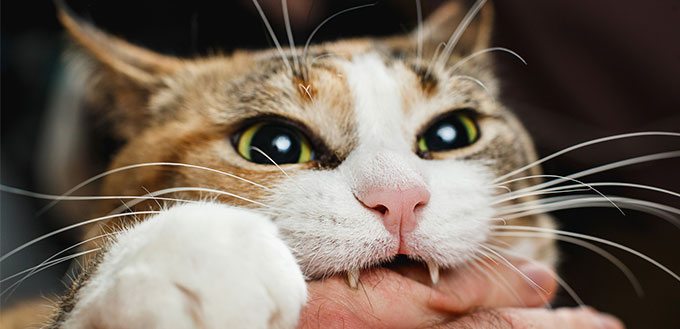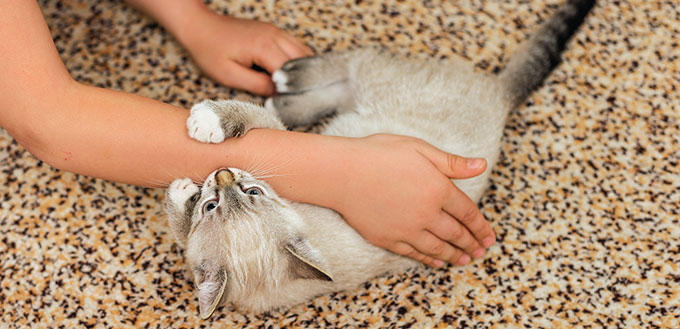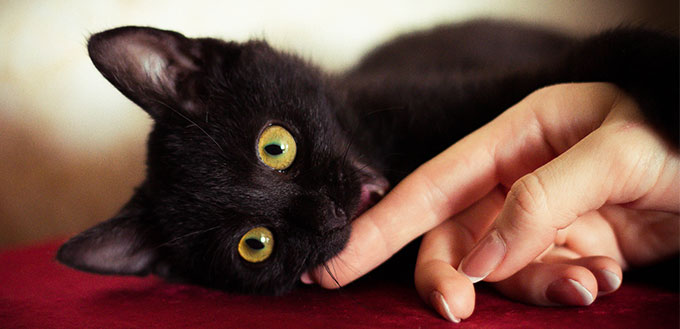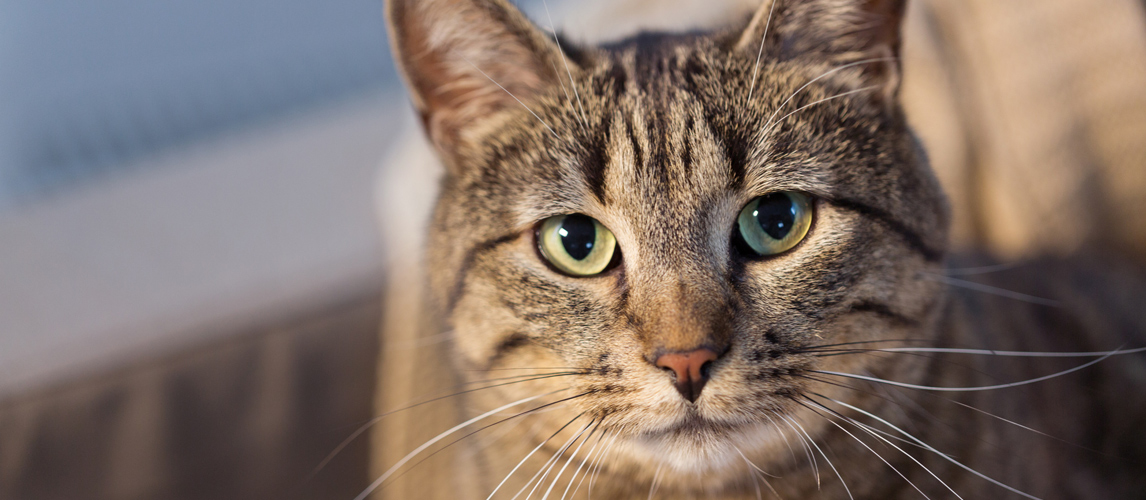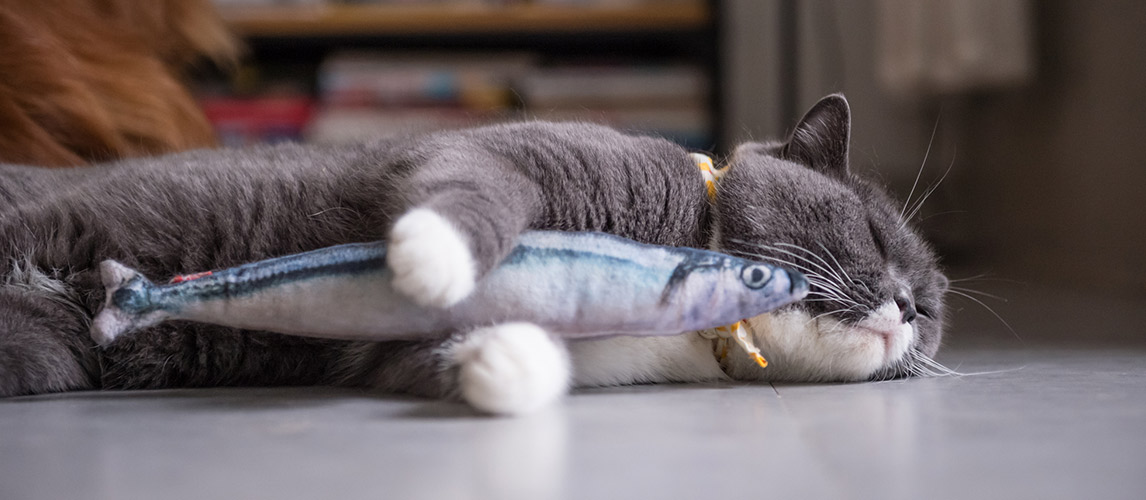It certainly seems strange sometimes when you are enjoying petting your cat, only to have them suddenly turn around and sink their teeth into your finger. While some people know this as love biting, others call it petting-induced aggression. Often, it is the case that the cat suddenly reacts when the petting has gone on too long, you have hit a sensitive spot, or they are letting you know that they are generally unhappy.
In this article, we are going to examine closer the reasons behind cats biting and what you can do to stop it.
Reasons Cats Bite
Before you can stop your cat from biting, you need to know some of the reasons why they are doing it in the first place. Here are some of the main reasons why your cat is biting you.
Overstimulation
One of the most common reasons that you get a nip from your cat is that they are overstimulated. There are a number of key indicators including their ears going back, growling, and a jerking tail. But sometimes there don’t appear to be any clear warning signs when your cat randomly bites. Your cat seems to be enjoying the petting until they aren’t and they suddenly bite your hand. The scientific explanation behind this phenomenon is that the hair follicle receptors have experienced too much petting and are starting to hurt your kitty.
Behavior Left Over from Kitten Days
Kittens interact with their mother, brother, and sisters through their mouth. They may be expressing a desire, exploring the environment around them or your kitten may be teething. Sometimes, adult cats continue with the cat play biting behavior patterns. In this situation, it is likely to be a light and playful bite which doesn’t really cause you much pain, but you can train your cat not to bite with sustained effort.
Related Post: How to Stop a Kitten From Biting
Responding to a Threat
In other situations, cats may bite as they are responding directly to a threat or asserting their dominance over a situation or a particular being. In these situations, the bites are likely to be harder and may run alongside other aggressive behavior patterns.
Stop an Unwanted Action
Sometimes, you will do something that a cat doesn’t like and they will bite you to stop you from doing it. For example, it could be trimming their nails or brushing their teeth. Once they know that it will stop you, they may continue repeating the behavior in the future.
How to Stop a Cat from Biting
There are a variety of different methods that you can use to stop your cat from biting. Here are a few techniques to try out.
Work Out What is Causing the Problem
It can help you out significantly to know why your cat is biting in the first place. If they are responding to a clearly stressful situation, you can take steps to avoid repeating it. If your cat doesn’t like being touched in a certain place, avoid continuing to touch it. And if your cat is responding to being startled, avoid making any jerky movements that may upset them. A major problem with pulling your hand away quickly is that your cat may associate it as being prey and will do their best to catch it, leading to further bites and scratches.
Look Out for the Warning Signs
Usually, there are some warning signs that indicate your cat is about to bite. Looking out for this body language is one of the best ways of avoiding getting bitten. For example, their tail may start thrashing around, their ears might be pinned back, pupils dilated, hissing and growling. The better you can read your cat’s emotions, the less likely it is that you are going to get bitten.
Play with Your Cat on a Regular Basis
Your cat is a natural hunter and it is important that you provide them with an outlet for their predatory instincts. You should get into a habit of playing with your cat for a few minutes every day for at least a few minutes. This allows your cat to scratch and bite something without causing harm. If you have a kitten, it is important that you start playing with them from a young age to make it less likely that they will bite anyone when they develop into an adult.
Avoid Using Negative Reinforcement Techniques
Some people think that an appropriate way to respond is to use negative reinforcement such as using a spray bottle or shock mat. The main problem is that this can make the issue even worse. Your cat may start to be afraid of you, hiding whenever you approach. Or you may cause even more fear, anxiety, and aggression. The same goes for yelling at your cat. Stress-related behaviors in a cat include urinating outside of the litter box or displaying ‘real’ aggressive behavior towards people in the household.
Know When to Stop Playing
While one of the previous points was about playing with your cat regularly, you need to be ready to withdraw from this play session if needed. If your cat looks like they are about to bite, get your hands well out of the way. If your cat does manage to sink their teeth in, firmly say ‘no’ and get away from them safely. Hopefully, your cat will start to learn that biting is a surefire way to end a play session early and will stop doing it.
Final Thoughts
If you are asking why does my cat bite me, there is no single reason why this happens, but there are some common factors that we have discussed above. Once you can put your finger on why they are doing it, you also put yourself in the best position to stop it. Hopefully, some of the techniques above prove to be useful in stopping the unwanted behavior of cat biting in your feline friend.
Sources:
- Biting/Scratching, The MSPCA–Angell
- Aggression in Cats, The ASPCA
- Aggression in Cats Toward People, Best Friends Animal Society
- Feline Behavior Problems: Aggression, Cornell University College of Veterinary Medicine


